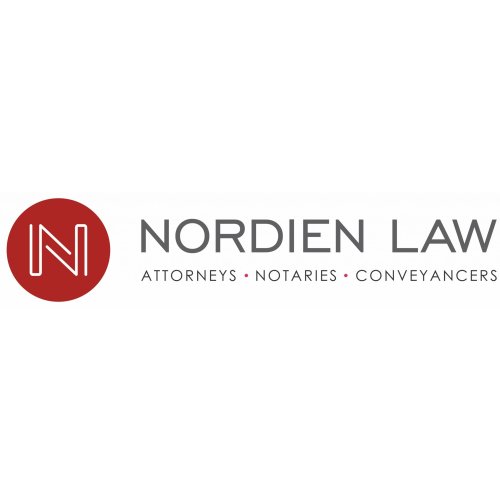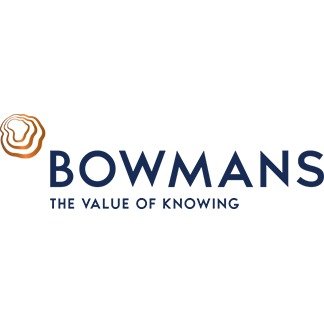Best Acquisition / Leveraged Finance Lawyers in Cape Town
Share your needs with us, get contacted by law firms.
Free. Takes 2 min.
List of the best lawyers in Cape Town, South Africa
About Acquisition / Leveraged Finance Law in Cape Town, South Africa
Acquisition and leveraged finance refer to the funding provided for businesses or investors to acquire or merge with other companies, often using a significant amount of borrowed money. In Cape Town, South Africa, this area of finance is an essential component for companies seeking to expand, restructure, or enter new markets. The legal environment is shaped by both domestic legislation and international best practices, ensuring that contracts are enforceable and that regulatory requirements are met. The city itself is a significant business hub, making acquisition and leveraged financing deals a regular feature of the local corporate landscape.
Why You May Need a Lawyer
There are several scenarios in which professional legal advice is vital in the realm of acquisition and leveraged finance. You may need a lawyer if you are:
- Acquiring or disposing of a business and require structured finance solutions.
- Seeking to raise debt to fund a merger or acquisition and need help navigating regulatory approval and compliance.
- Negotiating or drafting complex credit agreements, term sheets, and other related documents.
- Dealing with cross-border financing and need guidance on South African legal requirements.
- Requiring advice on security structuring, guarantees, and possible risk exposures.
- Concerned about regulatory compliance with the Companies Act, exchange control regulations, or competition regulations.
- Managing disputes or litigation relating to financing arrangements or defaults.
- Considering restructuring or refinancing existing acquisition finance facilities.
In all these cases, a legal expert can help ensure the transaction is legally sound, efficiently executed, and compliant with all relevant regulations.
Local Laws Overview
South Africa has a robust legal framework governing acquisition and leveraged finance. Some key aspects relevant to Cape Town include:
- The Companies Act 71 of 2008 - Governs company formation, mergers, acquisitions, and director responsibilities. It also places requirements on financial assistance related to share acquisitions (Section 45).
- The Competition Act 89 of 1998 - Sets out merger control procedures and prohibits anti-competitive practices.
- Financial assistance provisions - South African law restricts companies from providing direct or indirect financial assistance for the acquisition of their own shares unless certain solvency and liquidity conditions are satisfied.
- Exchange control regulations - Governed by the South African Reserve Bank, affecting cross-border acquisition or finance deals, including approvals for outbound payments and receipt of foreign funds.
- Perfection of security - Local laws on how security interests over assets (such as shares, property, or movables) must be registered and enforced.
- South African tax law and stamp duty - Tax implications of leveraged transactions and the structuring of debt and equity instruments.
- Banking regulation - Compliance with the Banks Act and rules imposed by the Prudential Authority for lenders and borrowers.
Professionals involved in acquisition or leveraged finance need to be mindful of these laws to avoid delays, penalties, or nullification of agreements.
Frequently Asked Questions
What is acquisition finance?
Acquisition finance refers to the capital required to purchase a business or assets. It often combines debt and equity and can be supported by the assets or cash flows of the company being acquired.
What is leveraged finance?
Leveraged finance generally involves using a higher proportion of debt in comparison to equity to fund an acquisition. This method allows buyers to increase their purchasing power but often introduces greater risk due to interest and repayment obligations.
Can a South African company assist in financing its own acquisition?
South African law restricts companies from providing direct or indirect financial assistance for acquiring their own shares unless specific conditions under Section 45 of the Companies Act are met, including board and shareholder approvals.
What are the regulatory requirements for acquiring a business in Cape Town?
Acquisition deals must comply with the Companies Act, Competition Act, exchange control regulations when cross-border funds are involved, and may need approvals from regulatory authorities such as the Competition Commission and the South African Reserve Bank.
How important is due diligence in acquisition finance?
Due diligence is critical. Thorough legal and financial due diligence identifies risks, uncovers liabilities, and ensures compliance, helping all parties make informed decisions and negotiate better terms.
Do I need Reserve Bank approval for international loans or investments?
Yes, if your acquisition or financing involves the movement of funds into or out of South Africa, or the granting of security to foreign lenders, prior approval from the South African Reserve Bank may be required.
What security can be granted in leveraged finance deals?
Common forms of security include mortgages over property, notarial bonds, pledges over shares, cession of rights, and guarantees. The form and extent must comply with South African law and be properly registered where applicable.
What happens if a borrower defaults on an acquisition loan?
If a borrower defaults, lenders may enforce their security, initiate legal proceedings to recover the debt, or take other contractually agreed steps. South African law sets formal procedures for enforcement.
Are there special considerations for BEE (Black Economic Empowerment) in acquisition finance?
Yes, Broad-Based Black Economic Empowerment (BEE) is an important consideration in many transactions. Parties need to ensure compliance when structuring acquisition and financing deals, as BEE status can affect regulatory approval and business opportunities.
Can private equity firms participate in leveraged buyouts in South Africa?
Yes, private equity firms are active in South Africa's acquisition and leveraged finance market. However, they must comply with local regulations on financing, company law, tax, and competition rules.
Additional Resources
For those seeking more information or support, the following organizations and bodies may be helpful:
- South African Reserve Bank - For exchange control guidance.
- Companies and Intellectual Property Commission (CIPC) - For compliance with company-related laws and filings.
- Competition Commission of South Africa - For merger approvals and competition law issues.
- South African Legal Practice Council - To find qualified attorneys specializing in finance law.
- South African Institute of Chartered Accountants (SAICA) - For related financial and due diligence support.
- The Law Society of South Africa - For information about legal professionals and standards.
Next Steps
If you are interested in or planning an acquisition or leveraged finance transaction in Cape Town, follow these steps:
- Gather all relevant information regarding the transaction, including financial statements, proposed structures, and target companies.
- Consult with a legal advisor who specializes in acquisition and leveraged finance to assess regulatory and compliance requirements.
- Engage other experts if needed, such as accountants or tax advisors, to assist with due diligence and structuring.
- Ensure all agreements are properly negotiated and documented to reflect your objectives and risk tolerances.
- Stay informed about regulatory updates that may impact your transaction or ongoing compliance obligations.
- Begin the process of securing required approvals from regulatory bodies as early as possible.
Taking expert legal advice early in the process can help avoid costly errors and ensure a smooth, compliant transaction.
Lawzana helps you find the best lawyers and law firms in Cape Town through a curated and pre-screened list of qualified legal professionals. Our platform offers rankings and detailed profiles of attorneys and law firms, allowing you to compare based on practice areas, including Acquisition / Leveraged Finance, experience, and client feedback.
Each profile includes a description of the firm's areas of practice, client reviews, team members and partners, year of establishment, spoken languages, office locations, contact information, social media presence, and any published articles or resources. Most firms on our platform speak English and are experienced in both local and international legal matters.
Get a quote from top-rated law firms in Cape Town, South Africa — quickly, securely, and without unnecessary hassle.
Disclaimer:
The information provided on this page is for general informational purposes only and does not constitute legal advice. While we strive to ensure the accuracy and relevance of the content, legal information may change over time, and interpretations of the law can vary. You should always consult with a qualified legal professional for advice specific to your situation.
We disclaim all liability for actions taken or not taken based on the content of this page. If you believe any information is incorrect or outdated, please contact us, and we will review and update it where appropriate.















